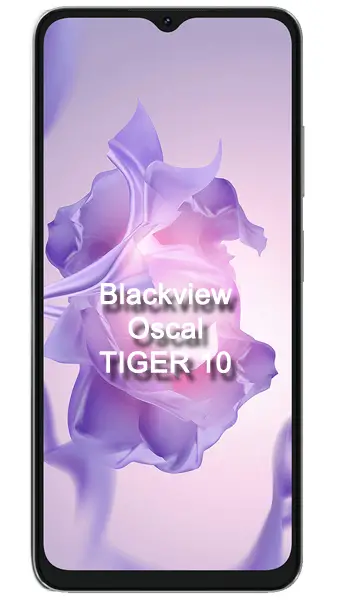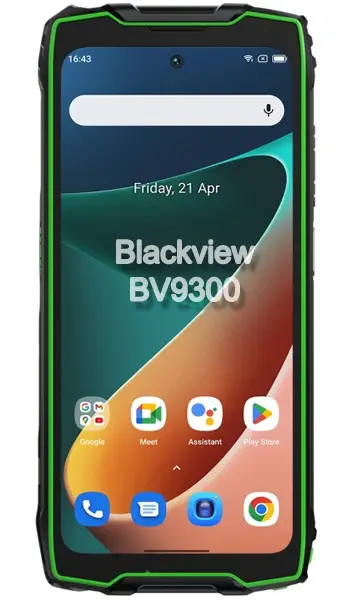Blackview Oscal Tiger 10 vs Blackview BV9300 Comparison and Differences
Smartphone 1

Blackview Oscal Tiger 10
Smartphone 2

Blackview BV9300
Smartphone 3
Blackview Oscal Tiger 10 or Blackview BV9300 Specs Comparison
or
 Common specs
Common specs
| Brand and model | Blackview Oscal Tiger 10 | Blackview BV9300 | |
| Rating | (+0) | (+0) | |
| Release date | 2023, November | 2023, May 10 | |
| Dimensions (HxWxD) | 163.2 x 75.2 x 8.8 mm | 6.43 x 6.43 x 2.96 in | 184.6 x 85.6 x 22.8 mm | 7.27 x 7.27 x 3.37 in | |
| Weight | 195 g | 6.88 oz | 520 g | 18.34 oz | |
| Case | buy from Amazon | buy from Amazon | |
| Colors | Dim Forest Green, Summer Sky Blue, Stardust Grey | Black, Orange, Green | |
| Battery | 5180 mAh, Li-Ion, non-removable | 15080 mAh, Li-Po, non-removable | |
| Approximate price | 180 EUR | ||
| Check price | from Amazon | from Amazon |
 Screen
Screen
| Technology | IPS LCD | IPS LCD | |
| Touchscreen | capacitive touchscreen | capacitive touchscreen | |
| Display colors | 16M | 16M | |
| Screen size | 6.6" in | 6.7" in | |
| Screen area | 104.6 cm2 | 108.7 cm2 | |
| Screen format | 20:9 (height:width) | ||
| Screen to body ratio | 85.3% | 68.8% | |
| Screen resolution | 720 x 1612 px | 1080 x 2388 px | |
| Screen PPI /points per inch/ | 267 PPI | 0 PPI | |
| Screen protection | Corning Gorilla Glass 5 | ||
| Other specs | - 90Hz, 400 nits - |
- 120Hz | |
| Screen protector | buy from Amazon | buy from Amazon |
 Camera and Video
Camera and Video
| Rear camera, main | 50 MP, Dual | 50 MP, Triple | |
| Camera specs | -50 MP, (wide), 1/2.76, 0.64µm, PDAF -2 MP, (depth) |
-50 MP, (wide), 1/2.76'', 0.64µm, PDAF -8 MP, 120˚, (ultrawide), AF -2 MP, (depth) |
|
| Functions | LED flash, HDR, panorama | LED flash, HDR, panorama | |
| Video | 1080p@30fps | 1440p@30fps, 1080p@30fps | |
| Front camera, selfie | 8 MP, Single | 32 MP, Single | |
| Specifications | 8 MP | 32 MP, ƒ/ 2.45, 0.80 µm, 1/2.8" | |
| Video | 1080p@30fps | 1080p |
 Performance
Performance
| Operating system - OS | Android 13, Doke OS 4.0 | Android 12, Doke-OS 3.1 | |
| Chipset | - Unisoc T606 (12 nm) | - Mediatek Helio G99 (6nm) | |
| CPU | - Octa-core (2x1.6 GHz Cortex-A75 & 6x1.6 GHz Cortex-A55) | - Octa-core (2x2.2 GHz Cortex-A76 & 6x2.0 GHz Cortex-A55) | |
| GPU | Mali-G57 MP1 | Mali-G57 MC2 | |
| External memory | microSDXC (uses shared SIM slot) | microSDXC (uses shared SIM slot) | |
| Internal memory | 256GB 8GB RAM | 256GB 12GB RAM |
 Benchmark
Benchmark
| Antutu 9 Total | 343288 | ||
| GeekBench 5 Single Core | 589 | ||
| GeekBench 5 Multi-Core | 1879 |
 Communication and Connectivity
Communication and Connectivity
| SIM card | Hybrid Dual SIM (Nano-SIM, dual stand-by) | Hybrid Dual SIM (Nano-SIM, dual stand-by) | |
| Network | GSM / HSPA / LTE | GSM / CDMA / HSPA / LTE | |
| Bands | -2G - GSM 850 / 900 / 1800 / 1900 - SIM 1 & SIM 2 -3G - HSDPA 900 / 2100 -4G - 1, 3, 7, 8, 19, 20, 40 |
-2G - GSM 850 / 900 / 1800 / 1900 - SIM 1 & SIM 2 CDMA 800 / 1900 -3G - HSDPA 850 / 900 / 1700(AWS) / 1900 / 2100 -4G - 1, 2, 3, 4, 5, 7, 8, 12, 13, 17, 18, 19, 20, 25, 26, 28, 30, 34, 38, 39, 40, 41, 66 |
|
| Speed | HSPA, LTE | HSPA, LTE | |
| GPRS | Yes | Yes | |
| Edge | Yes | Yes | |
| Wi-Fi | Wi-Fi 802.11 a/b/g/n/ac, dual-band | Wi-Fi 802.11 a/b/g/n/ac, dual-band | |
| GPS | GPS, GLONASS, GALILEO, BDS | GPS, GLONASS, GALILEO, BDS | |
| NFC | No | Yes | |
| USB | USB Type-C, OTG | USB Type-C, OTG | |
| Bluetooth | 5.0, A2DP, LE | 5.2, A2DP, LE |
 Music and Audio
Music and Audio
| Radio | FM radio | FM radio | |
| Headphone jack | Yes | No |
 Other features
Other features
| Sensors | - Fingerprint (side-mounted), accelerometer, proximity | - Fingerprint (side-mounted), accelerometer, proximity, compass | |
| Other extras |
- Fast charging 33.0W -Reverse charging 5W - IP68/IP69K dust/water resistant (up to 1.5m for 30 min) -Drop-to-concrete resistance from up to 1.8m -MIL-STD-810H compliant |
Reviews and Opinions on Blackview Oscal Tiger 10 and Blackview BV9300
If you had to recommend one of these phones to a friend, which one would it be and why? Share your arguments using the Add Opinion button!

